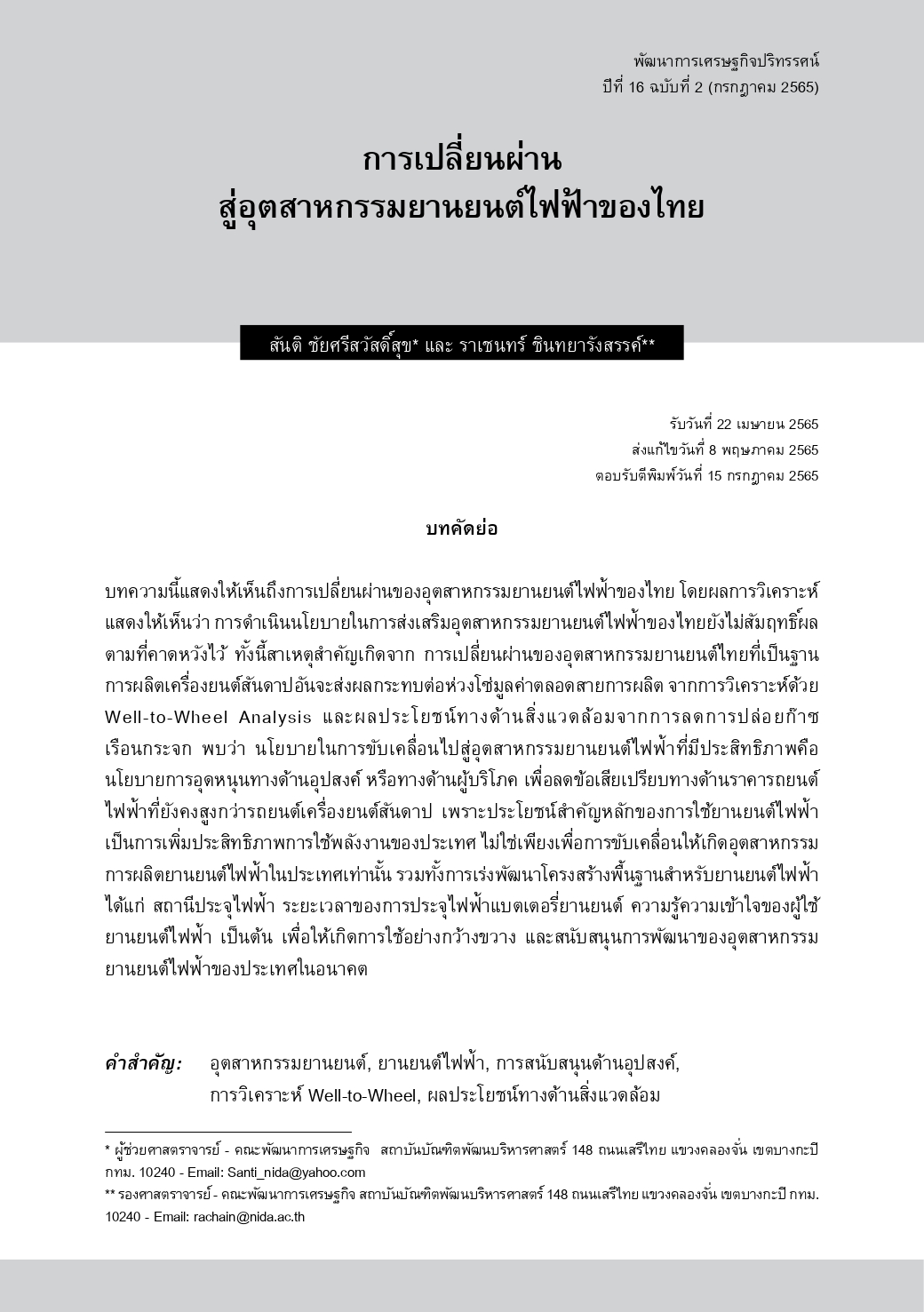A Transition to Electric Vehicle Industry in Thailand
Abstract
The economic impacts of COVID-19 pandemic have forced acceleration of economic restructuring in Thailand. Auto industry has been the focal point of growth for the last two decades and recently is in a profounding transition period when electronic vehicle technologies have been fast forwarding. The paper shows that the advantage of energy efficiency over internal combustion engine is the significant factor for the policy decision to commit and engage in the establishment of EV industry and the economy as a whole to pursue its competitiveness for the future. Despite lacking of Well-to-Wheel analysis (WTW) specifically for Thailand, many of the previous studies confirmed the energy efficiency benefits of EV over Internal Combustion Engine Vehicles (ICE) especially when the reduction of Green House Gas (GHG) is taken into account. Thailand, as a major player in the global value chain of the industry, a transition to EV industry involves crucial adjustments both on the producer and consumer side where employment has been one of the concerns. Thus far, supporting policies in Thailand are mostly producer oriented and hoping the advantages can be transferred to buyers by lower the market price of EV. Unfortunately, it has been less effective since the number of EV (Battery EV, Hybrid EV, and Plug-in EV included) in Thailand has been small and slow growing. Interesting policy to subsidize EV users on the demand side and investment on EV infrastructures are worth considering as better and more efficient policies. Government measures to mitigate some of the disadvantages for EV buyers such as the more expensive EV over ICE, driving range anxiety, few and not enough charging stations as well as some incentives provided can help the use of EV in Thailand. Expansion of domestic EV market will be a fundamental factor necessary for the building and development of EV industry and the future of auto industry.

Downloads
Published
Issue
Section
License
Copyright to published manuscripts becomes the property of the Graduate School of Development Economics, National Institute of Development Administration. Reproduction of all or part of a Development Economic Review (DER) article by anyone, excluding author(s), is prohibited, unless receiving our permission.
Disclaimer: Opinions expressed in articles published in this journal are those of the author (s) and do nto necessarily represent opinions of the Graduate School of Development Economics, National Institute of Development Administration. Trade and proprietary names are only for identification and not constitute our endorsement.

